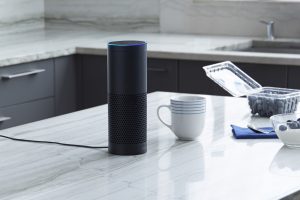Article
BBC planning Alexa rival | Advanced Television
BBC’s Beeb voice assistant goes beta | Advanced Television
BBC launches voice assistant that will learn regional accents | Mashable
From the horse’s mouth
British Broadcasting Corporation
What’s next for Beeb: The new voice assistant from the BBC (Press Release)
My Comments
The BBC have started work on the first voice-driven assistant platform that is designed in the UK and for British conditions. This platform is named Beeb which is one of the common affectionate nicknames for that public-service broadcaster.
It will be initially rolled out to UK participants of Microsoft’s Windows Insider program and is at beta stage, thus limiting it to use on regular computers at the moment. It is based on the BBC’s iPlayer content-directory effort and will be primarily about bringing up audio content like live and on-demand radio content, music or podcasts. It will also be able to bring forth local news and weather information.
There will even be the ability to respond from material written by BBC comedy writers when you ask for a joke, including the ability to ask for a joke from a particular show. This is thanks to the amount of intellectual property that they have built up over the years including all those legendary sitcoms and other comedy associated with British telly.
Beeb will be voiced with a male voice that has a northern English accent. As well, its initial setup will have the user determine what UK regional accent they have so it understands their accent better. This is part of an effort by the BBC to preserve local British accents in the face of other voice-driven assistants which force users to use standard British English pronunciation over regional accents.
There is an intent to roll it out to other devices which are software-programmable and it will also to be part of revisions to the iPlayer app and BBC Website. But personally, I see the BBC’s Beeb effort as a candidate for the Voice Interoperability Initiative driven by Amazon and Microsoft that allows a device to run with multiple voice assistants and respond to each assistant’s “wake word”. That is an activity that the BBC are infact a participant in.
Support for regional and local accents
But personally, I see the Beeb voice assistant as opening a path for UK companies to develop their own voice-driven assistants that respect UK language, dialects, accents and culture. It can also be an example of fine-tuning a voice-driven assistant platform to work with the various local accents and dialects used within a country or language and avoid steering the user towards what is seen as a standardised pronunciation for that language.
What will eventually need to happen would be to allow automatic detection of a user’s accent and to work with that accent automatically when they speak, rather than requiring a user to determine which accent they are using during setup. Having to determine which accent you are using during the setup phase can be a problem for households with members that come from different regions.
I would also see efforts like Beeb end up being about local-speech “modules” for voice-driven assistant platforms that enable these platforms to support a country’s or language’s local peculiarities when it comes to regular use. It will then avoid the need for people to resort to using “standard” diction rather than the accent they are comfortable with to deal with voice assistants. Similarly, it could be about different “voicings” that maintain local characteristics for the assistant’s speech.
Who knows what this could mean for making voice-driven assistants locally relevant?




